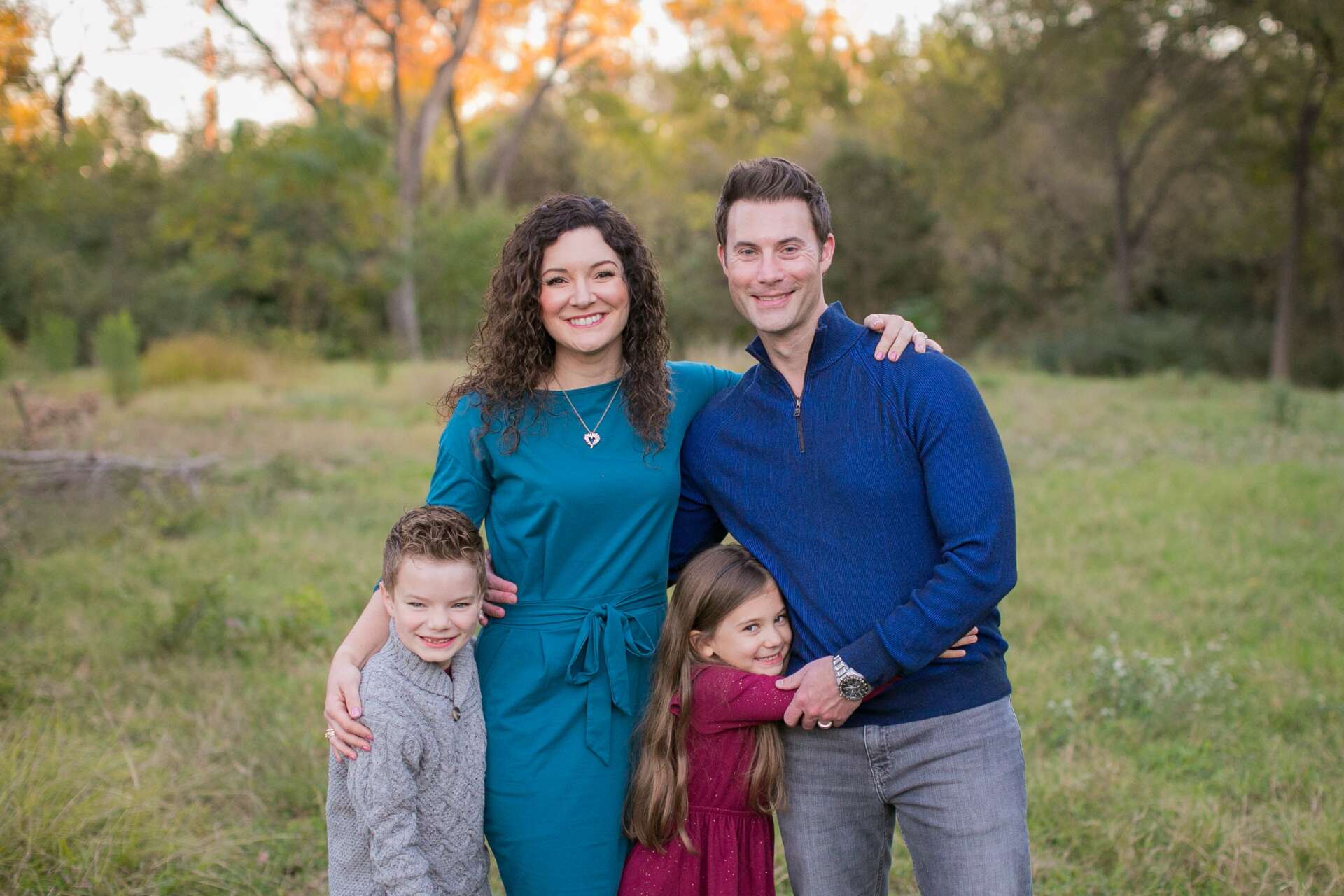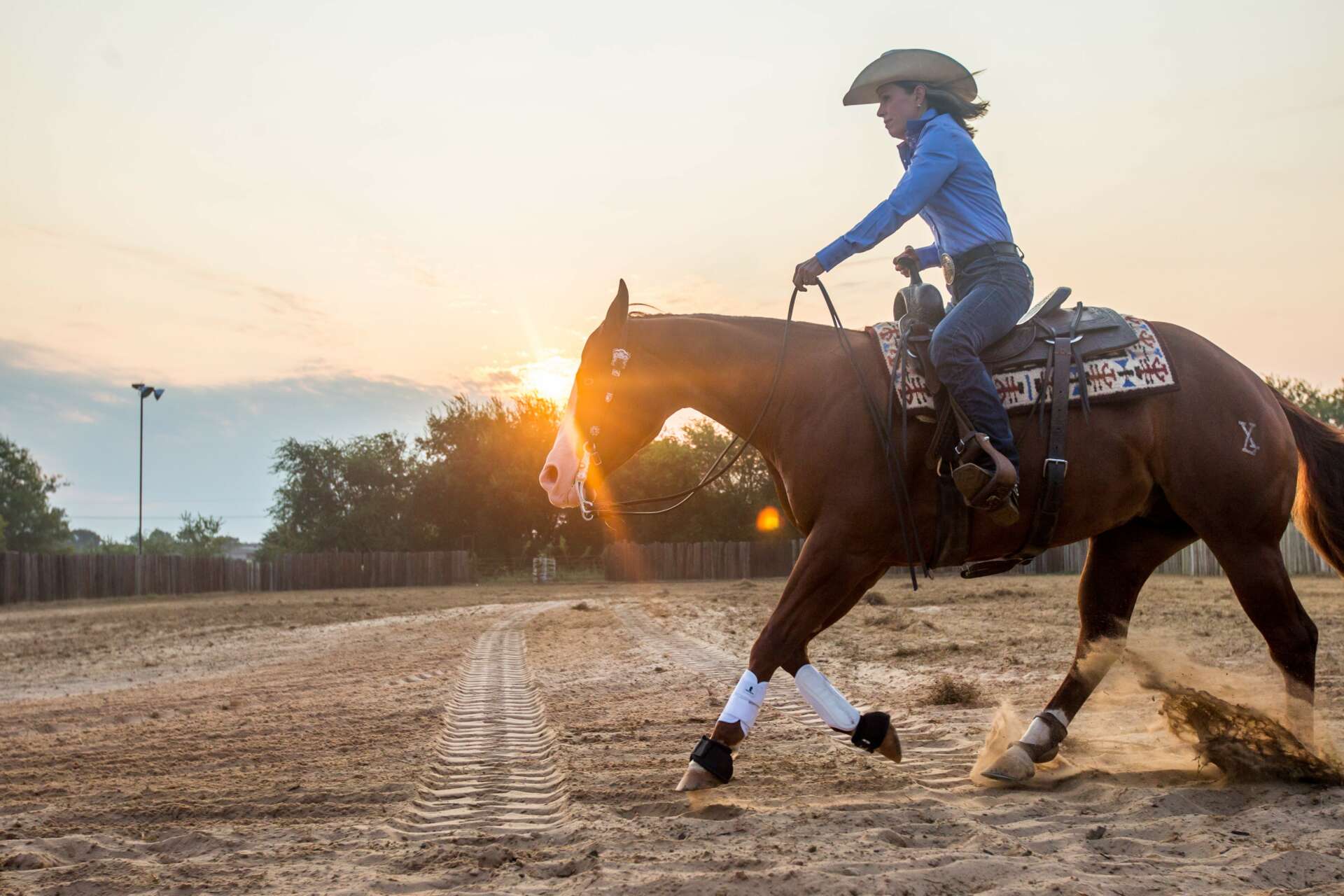We recently connected with Abigail Boatwright and have shared our conversation below.
Abigail, thanks for joining us, excited to have you contributing your stories and insights. Have you been able to earn a full-time living from your creative work? If so, can you walk us through your journey and how you made it happen? Was it like that from day one? If not, what were some of the major steps and milestones and do you think you could have sped up the process somehow knowing what you know now?
I graduated from Texas A&M with a degree in agricultural communications and internship experience at a major equine breed association’s media department. My time at the American Quarter Horse Association gave me valuable skills that I carried into a similar full-time position at Fort Worth-based American Paint Horse Association’s media department. I worked on staff as a writer and photographer for nearly 5 years. When I decided to go freelance to have more flexibility, I reached out to the editors at magazines whom I’d met during my time on staff, and let them know I was available to freelance.
Being trained as an equine media professional with my own background in the horse world (I was a world champion-level competitor and competed on A&M’s NCAA collegiate equestrian team) gave me the credentials I needed to get my foot in the door as a freelancer. But from there, I had to have relevant story pitches and prove myself as a dependable writer and photographer to keep getting work.
My first year as a freelancer, I made under what I made on staff. I am married, and my husband also has a job, so that was a blessing. Since then, I have made more than I did on staff. It takes a little time to show magazine editors that you can do the work needed to get hired–and hired again. I work with, on average, about 12 magazines at a time, most of which are horse magazines, and a couple of regional lifestyle publications. The key is to have good story ideas, and enough of them that you can pitch different ideas to different magazines without crossover. I have done this year after year. I get about 50% of my work as assignments, and 50% are pitches.
I have won seven first-place awards through the American Horse Publications association, an organization of equine magazines. The conferences and awards ceremonies connected me with editors and other business contacts, which has broadened my portfolio of magazines for which I write. Those awards add credibility to my skills.
Today, I’ve been a freelancer for 10 years, and have made a good living income. I’ve worked really hard to get to this point, but now stepping into contract editor work and business copywriting alongside my writing and photography has given me new skills to sharpen, while still being fully immersed in a niche industry that I love.




Awesome – so before we get into the rest of our questions, can you briefly introduce yourself to our readers.
I am a writer and photographer, mainly for equine businesses and publications. I have always loved horses and have ridden and competed since I was 8 years old. I have also read horse magazines for as long as I can remember. So becoming a media professional for horse magazines felt like a dream career–and it still does, after 15 years of doing this work! I love learning from expert horsemen and veterinarians and communicating their expertise to readers. I love sharing the stories of horse people and the horses they love. It’s an honor to tell these stories and share them with readers.
In addition to magazine work, I do copywriting for businesses. Whether it’s a bio, webpage copy, press releases or e-newsletters, my skills matching the tone of more than a dozen magazines at a time has given me an edge to craft copy for individuals and organizations that match their brand voice.
I have taken portraits and equine editorial photos for 15 years, and it gives me a lot of joy to be able to capture the relationship between a horse and human, families together and couples in love.
Looking back, are there any resources you wish you knew about earlier in your creative journey?
Navigating the world of equine media as a freelancer was a learn-as-you-go experience for me. There were few resources outside of the editors themselves. I had no one to talk to about negotiating rates, handling difficult sources, balancing work with many magazines. I learned the hard way, and I think my background on staff at magazines helped me. But for someone without that background, it would be even harder.
That’s honestly why I created a community called The Freelance Remuda with a fellow equine media pro. We have a podcast that discusses being a freelancer in the equine media space, as well as a facebook group and a mentorship program designed specifically for aspiring freelancers to get their careers started. There’s been a great response to our offerings. We have a wonderful community, and many of our mentorship clients have taken the guidance we gave them and launched their own very successful careers as equine media professionals.
There still is little guidance for mid- and upper-level professionals in this space. There are coaches, but they’re outside the equine media world. I’d love to find mentors and courses for my specific niche, but I haven’t found many yet.




How’d you build such a strong reputation within your market?
I mentioned this before, but I grew up riding horses and competing at a high level. In college I pursued a degree in my specific niche of communications. I pursued internships in this field, and I got a job at an equine breed association magazine straight out of college. These pieces gave me the necessary background knowledge and connections in the horse world, plus the skills needed to write about this industry before I ever became a freelancer.
So presenting my portfolio of published work and my background to editors gave me an important level of credibility before I ever started working for any magazines as a freelancer. I had to back up those credentials with good writing and photography, as well as consistently meeting deadlines and conducting myself as a professional to build my working relationships.
The horse magazine world is small. It’s often a revolving door of the same few editors and writers. So developing a reputation for doing good work helped me launch and maintain a freelance career.
I do want to say that my path to freelancing is not the ONLY way to do it. There are many ways to break into this business. Having a background in horses (or whatever your niche!) and an ability to write articles that match the style of the magazine are the keys to getting work in this industry in my opinion.
Contact Info:
- Website: www.abigailboatwright.com
- Instagram: @abigail.boatwright
- Facebook: @AbigailBoatwrightCommunications
- Linkedin: https://www.linkedin.com/in/abigailboatwright/
- Other: www.freelanceremuda.com – My podcast, blog and mentorship program for aspiring freelancers in equine media.
Image Credits
Kate Byars, Jashley Michelle Photography, Abigail Boatwright Communications


